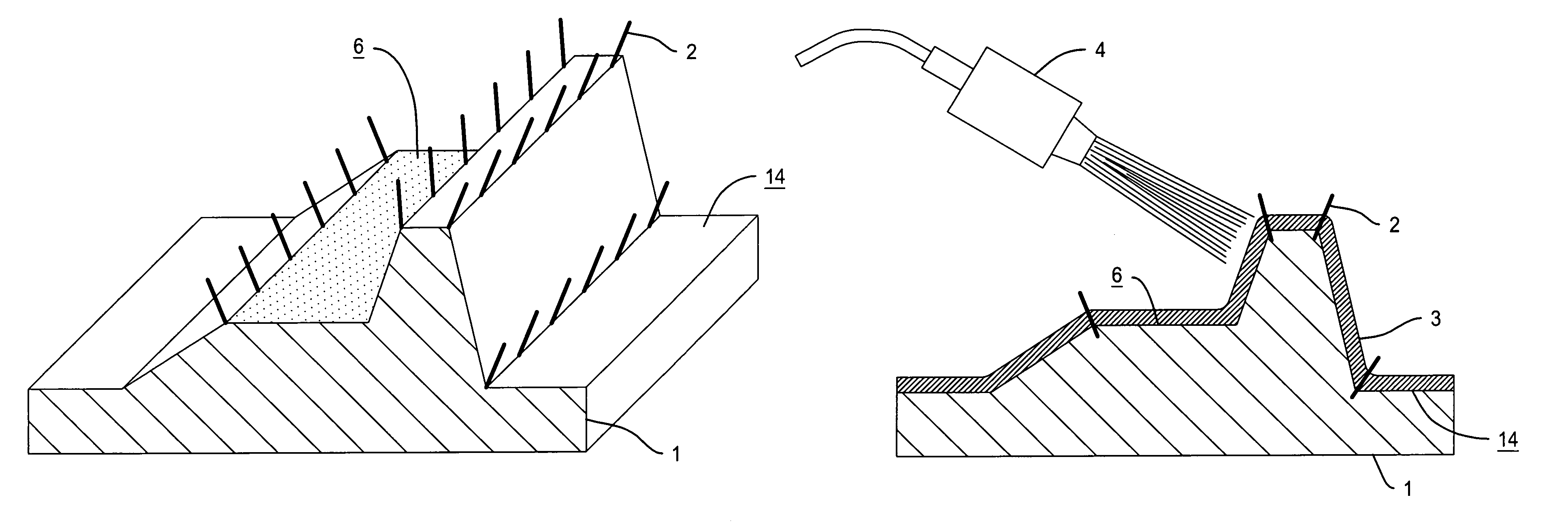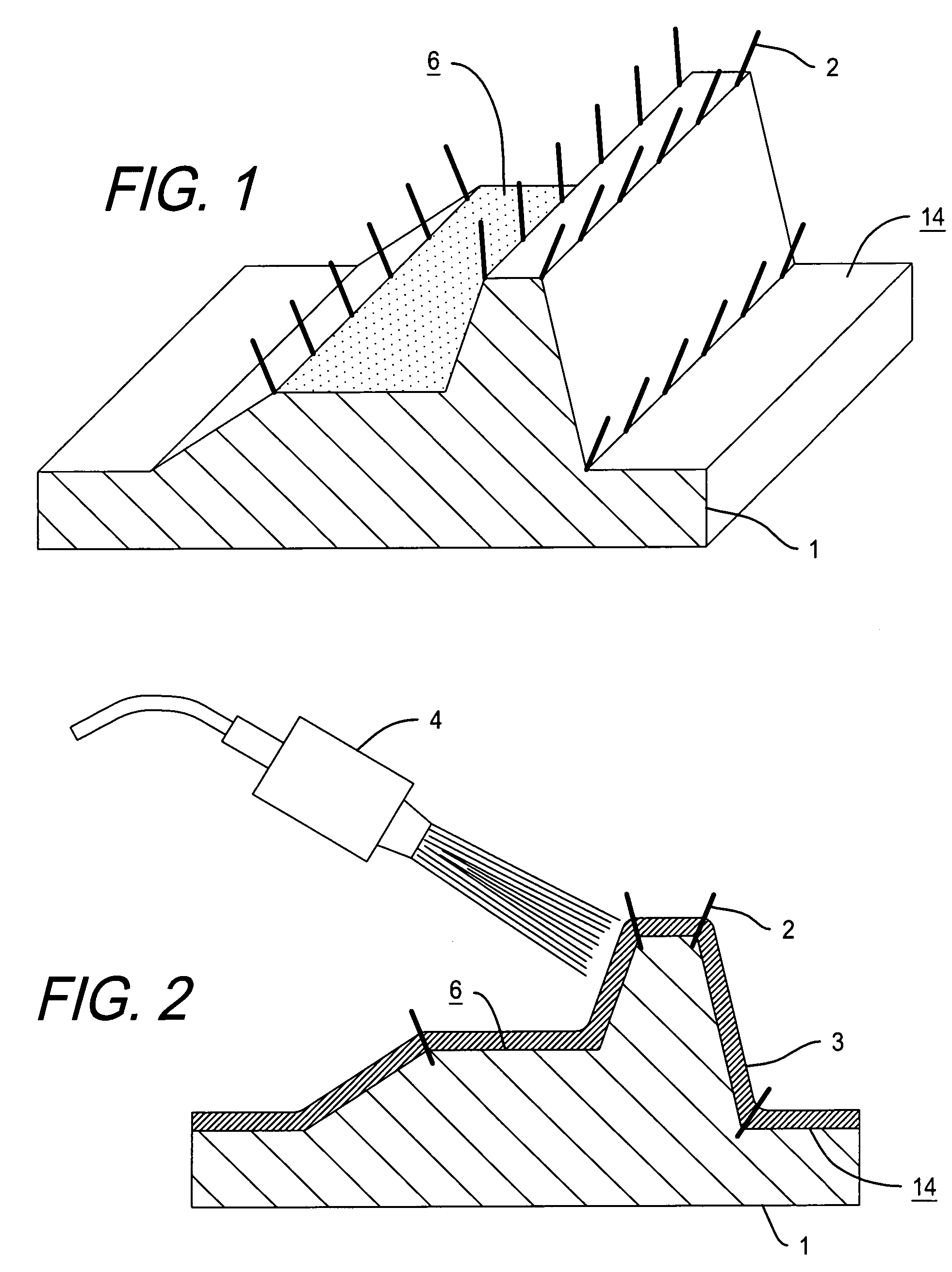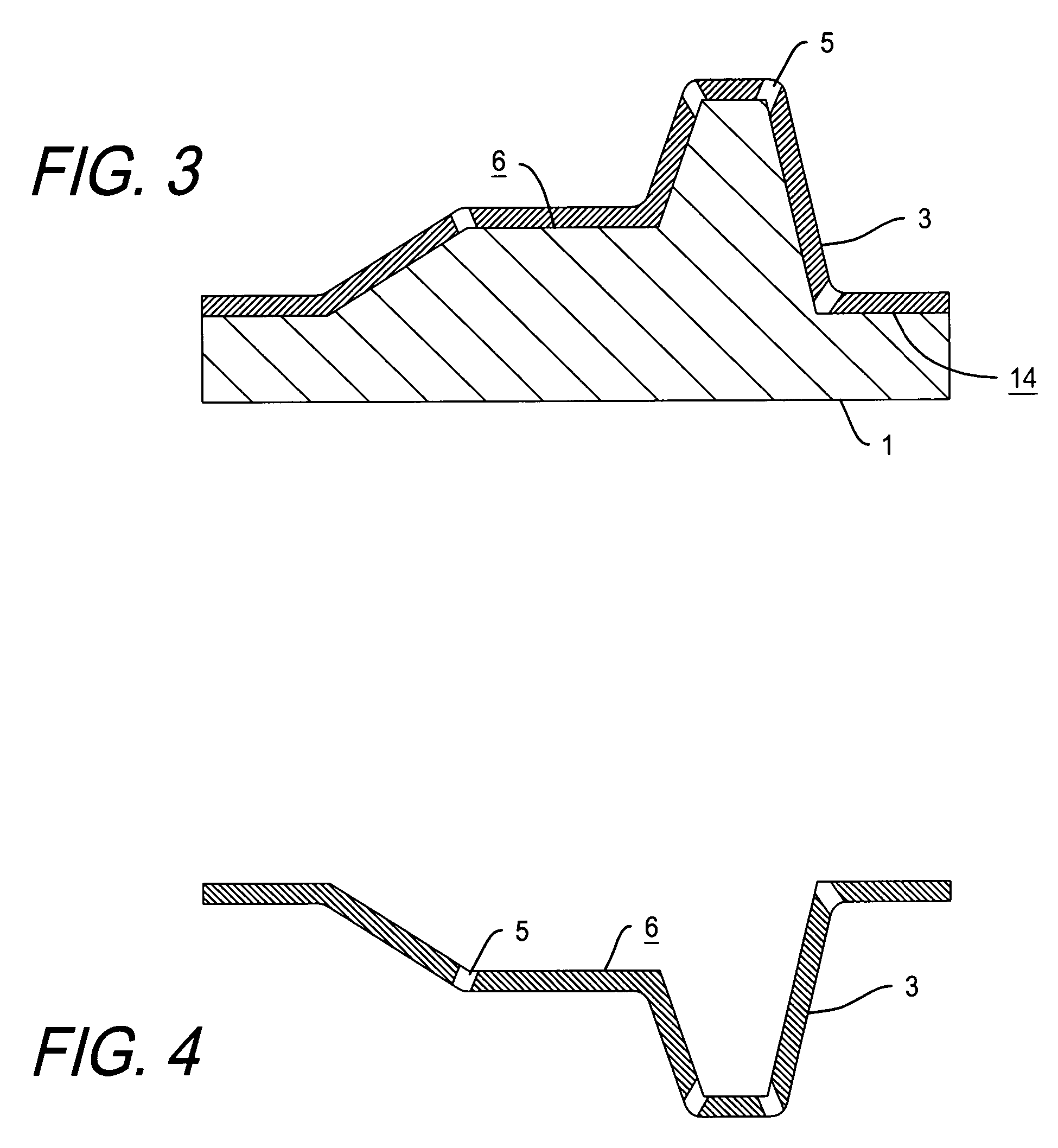Method of venting a spray metal mold
a technology of spray metal molds and vents, which is applied in the field of new venting methods of spray metal molding tools, can solve the problems of inability to replicate, inability to drill a multiplicity of small vent holes in the surface, and undesirable existing methods of producing mold surfaces with a plurality of vents, etc., and achieves the effect of minimal time and effective and economical methods
- Summary
- Abstract
- Description
- Claims
- Application Information
AI Technical Summary
Benefits of technology
Problems solved by technology
Method used
Image
Examples
Embodiment Construction
[0072]In the preferred embodiment, the process of producing a mold surface comprised of a layer of thermal spray metal providing venting channels through the thermal spray metal layer is described in FIG. 1 through FIG. 3 and FIG. 7 through FIG. 11. Further uses of the present invention and mold construction methods by way of example will be described in FIG. 4 through FIG. 6B.
[0073]Referring to FIG. 1, there is shown a pattern, target or mandrel, commonly referred to as a mold model (1), which is the inverse of the shape of the desired mold surface. The model is produced from a modeling board available from Huntsman of Salt Lake City, Utah and others. The surface is further grained in the required areas with the desired texture (6). A plurality of metal tapered pins with an outside diameter of 0.018 inch are inserted in the model surface about 0.13 inch deep or as deep as necessary to rigidly locate the pin in the model material. The pin is inserted at such an angle as to prevent s...
PUM
| Property | Measurement | Unit |
|---|---|---|
| porosity | aaaaa | aaaaa |
| porosity | aaaaa | aaaaa |
| thickness | aaaaa | aaaaa |
Abstract
Description
Claims
Application Information
 Login to View More
Login to View More - R&D
- Intellectual Property
- Life Sciences
- Materials
- Tech Scout
- Unparalleled Data Quality
- Higher Quality Content
- 60% Fewer Hallucinations
Browse by: Latest US Patents, China's latest patents, Technical Efficacy Thesaurus, Application Domain, Technology Topic, Popular Technical Reports.
© 2025 PatSnap. All rights reserved.Legal|Privacy policy|Modern Slavery Act Transparency Statement|Sitemap|About US| Contact US: help@patsnap.com



